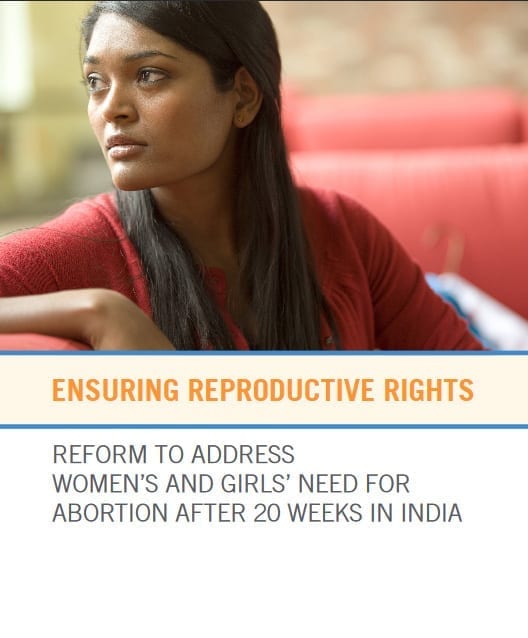Four Women Imprisoned for Abortion Granted Amnesty by Nepal’s King
54 Women Still Languishing in Prison
Four women imprisoned on abortion and related charges were released by King Gyanendra this week as part of a birthday tradition that involves granting amnesty to some prisoners. Of the 150 prisoners released this year, only seven were women, four of the women were serving time for abortion or crimes resulting from the criminalization of abortion. Abortion was legalized in Nepal in September 2002.
“We are grateful to the King for releasing these women,” said Melissa Upreti, legal adviser with the Center for Reproductive Rights. “But the fate of the women still in prison remains unknown. The Government of Nepal must show its respect for the rule of law and take responsibility for the violations of these women’s human rights.”
In 2002, King Gyanendra signed into law a bill that legalized abortion, as well as bringing about sweeping changes in many other discriminatory laws. Abortion is now legal in Nepal under certain conditions, including upon request during the first 12 weeks of pregnancy, when a woman’s life or health is in danger, and in cases of rape, incest, and fetal impairment. Despite the fact that abortion is now legal, 54 women are still serving time.
Portrait of Women Imprisoned:
- 90% of the women who remain in prison for abortion-related offenses are under the age of 35. Every day they face discrimination, violence, denial of due process, and inhumane and degrading prison conditions-realities that existed long before Nepal reformed the abortion ban.
- 81% of the women still in prison have two or more living children, most of whom are completely estranged from them. Some of these children-left alone to fend for themselves-have moved into prison with their mothers, suffering the same degrading treatment.
- 46% report that a family member turned them into authorities for allegedly violating the abortion ban and another 26% report that a neighbor turned them in.
- Though 58% of the women who remain in prison are married, only 27% have received support-of any kind-from family members.
- 46% of the women are serving a five-year sentence and 23% are serving a twenty-year sentence.
Although the Nepali government prosecuted the majority of these women for the crime of “infanticide,” a closer examination of their case histories reveals that many of the women suffered from miscarriages, stillbirths or induced abortions, proper distinctions were never made. In most cases, these women were denied legal representation and subjected to other due process violations, which raise serious doubts about the credibility of the charges levied against them and the legitimacy of their imprisonment. Even in cases where women have been charged with abortions, their sentences have often exceeded the prescribed limit.
While Nepal became a democratic country 12 years ago, women have only just begun to experience true democracy. The passage of the 11th Amendment Bill last September modifies a host of discriminatory laws in the Nepal Civil Code that affect women, ranging from equal rights to grant citizenship to children and equal rights to ancestral property, as well as safe abortion.
At least 7 women have been prosecuted for infanticide since the legalization of abortion, despite case histories indicating that some of their pregnancies actually ended in either induced or spontaneous abortions. This marks a continuation of the same trend that existed before legalization, which involved charging women who had abortions with infanticide in order to impose harsher sentences.

